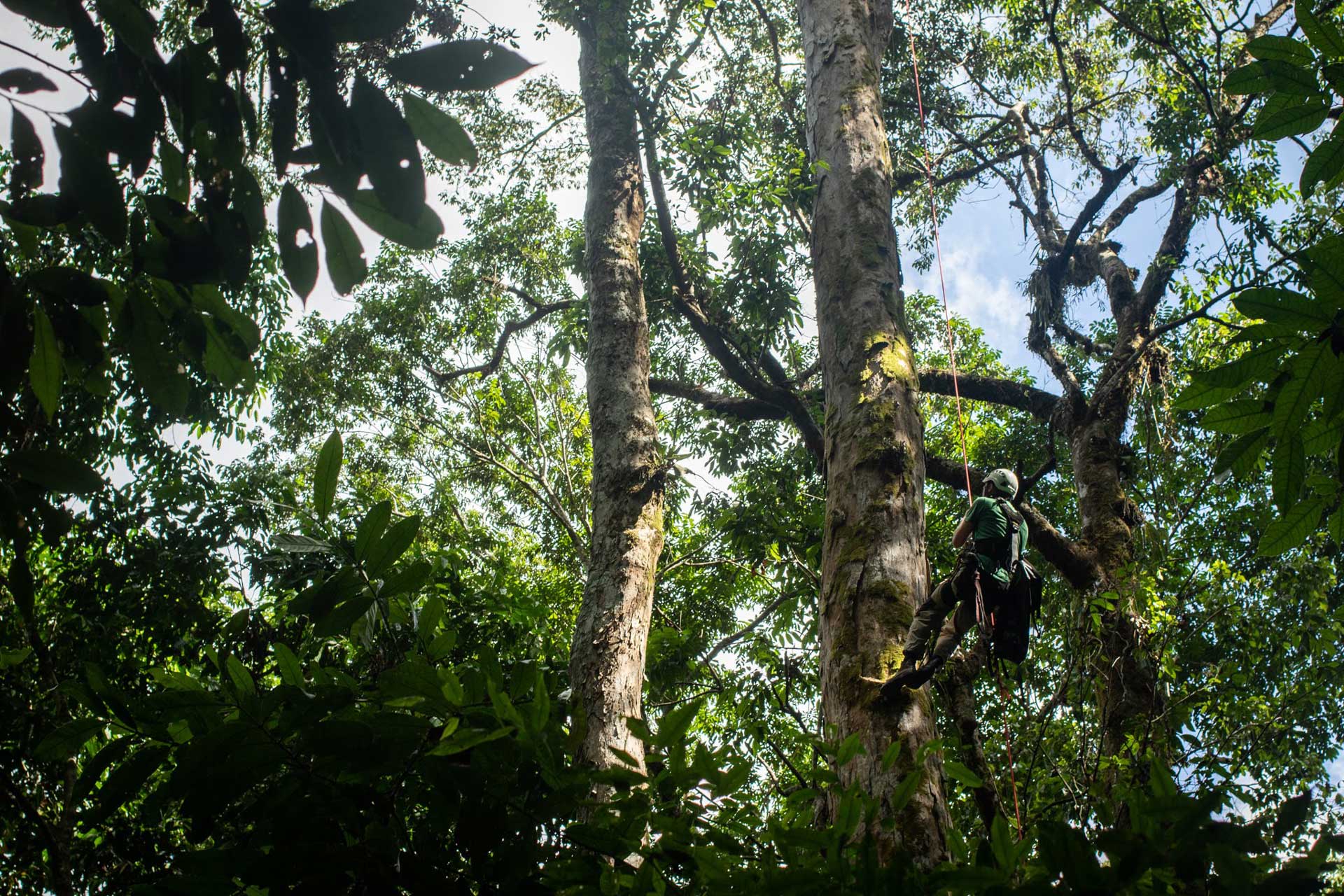
Otoba novogranatensis
Otoba novogranatensis
Bogamaní, Bola de oro, Campano, Escobo negro, Fruta dorada, Hoja dorada, Sebo
Audio
English Audio
Audio en Español
Plant Story
The Golden Fruit tree grows commonly throughout the humid forests of Costa Rica. The tree reaches up to 30 meters, and grows wide leaves with a white underside and an aromatic, reddish sap. Its brown flowers are likely pollinated by insects, and its green fruits open once mature to leave its seed uncovered. The seed itself is surrounded by a fleshy layer called the aril, which helps it attract its dispersers, thought to be bats. Its wood is used for plywood and construction. The tree is distributed from Nicaragua to Ecuador; in Costa Rica it grows throughout the Atlantic and Pacific slopes.
Historia de la planta
Otoba novogranatensis es un árbol muy representativo de los bosques muy húmedos de Costa Rica, donde llega a ser relativamente común; llega hasta 30 metros de alto, las hojas son anchas, blancas por debajo, con savia rojiza muy aromática. Las flores son pardas, probablemente polinizadas por insectos, los frutos son verdes, al madurar se abren y dejan descubierta la semilla, la cual está envuelta por una capa carnosa llamada arilo, la cual le ayuda atraer sus dispersores los cuales en teoría son murciélagos. Su madera ha sido utilizada para contrachapado y construcción interior. Crece desde Nicaragua hasta Ecuador, en Costa Rica se distribuye ampliamente en ambas vertientes.
Plant details
Plant Information
Botanic Name:
Otoba novogranatensis
Common name(s):
Fruta dorada, Bogamaní, Bola de oro, Campano, Escobo negro, Fruta dorada, Hoja dorada, Sebo
Family
Myristicaceae
Phenology
Flowering Months:
April
Fruiting Months:
March, July
Conservation
IUCN category:
Not evaluated / No evaluado (NE)
CITES:
Not protected / Sin protección
Interesting Links
Plant Locations
Fruta dorada
Plant details
Audio
English Audio
Audio en Español
Story / Historia
Plant Story
The Golden Fruit tree grows commonly throughout the humid forests of Costa Rica. The tree reaches up to 30 meters, and grows wide leaves with a white underside and an aromatic, reddish sap. Its brown flowers are likely pollinated by insects, and its green fruits open once mature to leave its seed uncovered. The seed itself is surrounded by a fleshy layer called the aril, which helps it attract its dispersers, thought to be bats. Its wood is used for plywood and construction. The tree is distributed from Nicaragua to Ecuador; in Costa Rica it grows throughout the Atlantic and Pacific slopes.
Historia de la planta
Otoba novogranatensis es un árbol muy representativo de los bosques muy húmedos de Costa Rica, donde llega a ser relativamente común; llega hasta 30 metros de alto, las hojas son anchas, blancas por debajo, con savia rojiza muy aromática. Las flores son pardas, probablemente polinizadas por insectos, los frutos son verdes, al madurar se abren y dejan descubierta la semilla, la cual está envuelta por una capa carnosa llamada arilo, la cual le ayuda atraer sus dispersores los cuales en teoría son murciélagos. Su madera ha sido utilizada para contrachapado y construcción interior. Crece desde Nicaragua hasta Ecuador, en Costa Rica se distribuye ampliamente en ambas vertientes.
Plant Information
Botanic Name
Otoba novogranatensis
Common name(s)
Bogamaní, Bola de oro, Campano, Escobo negro, Fruta dorada, Hoja dorada, Sebo
Family
Myristicaceae
Phenology
Flowering Months
April
Fruiting Monts
March, July
Conservation
IUCN category
Not evaluated / No evaluado (NE)
CITES
Not protected / Sin protección
Interesting Links
Plant Locations
Post A Comment
You must be logged in to post a comment.



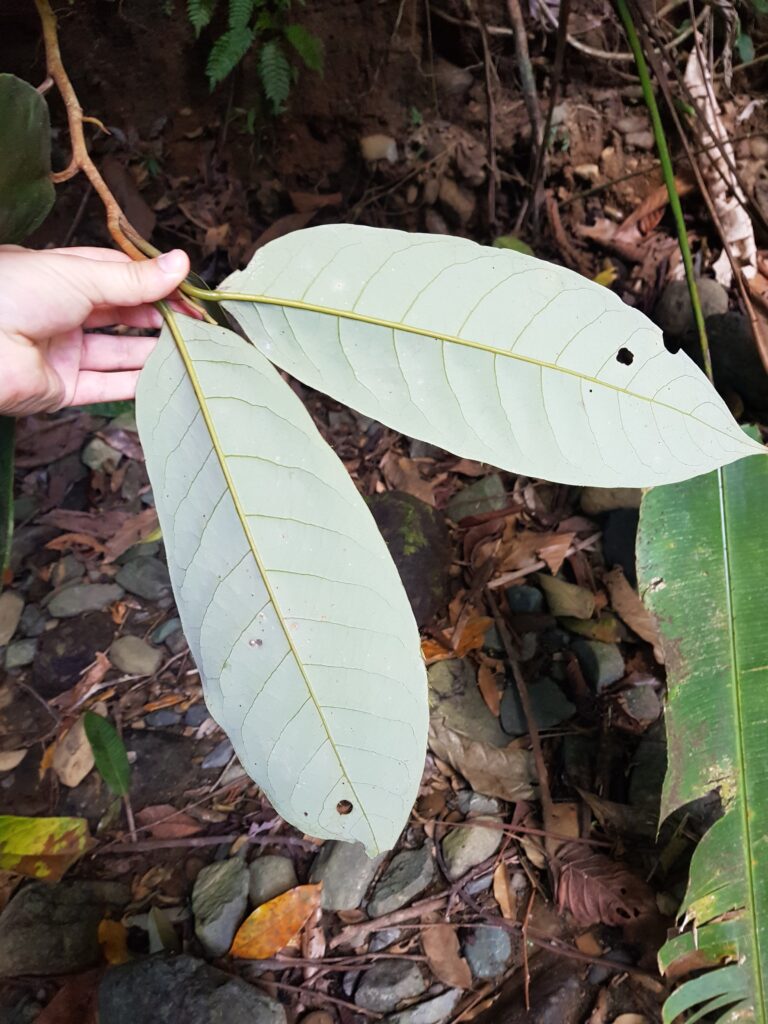
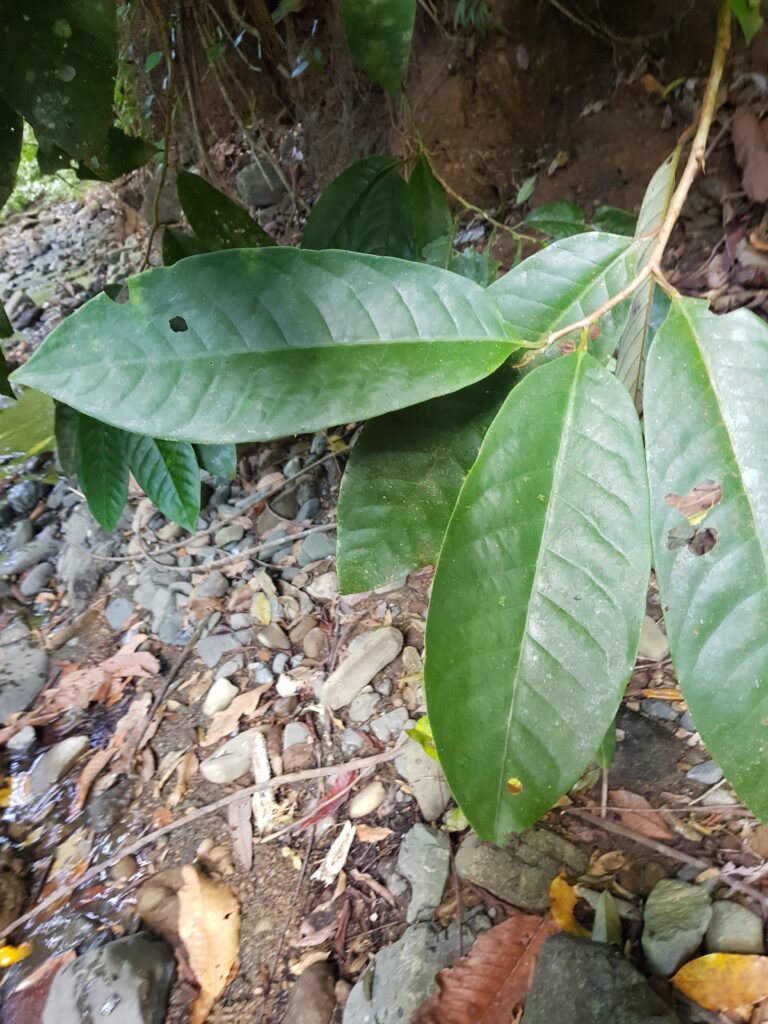
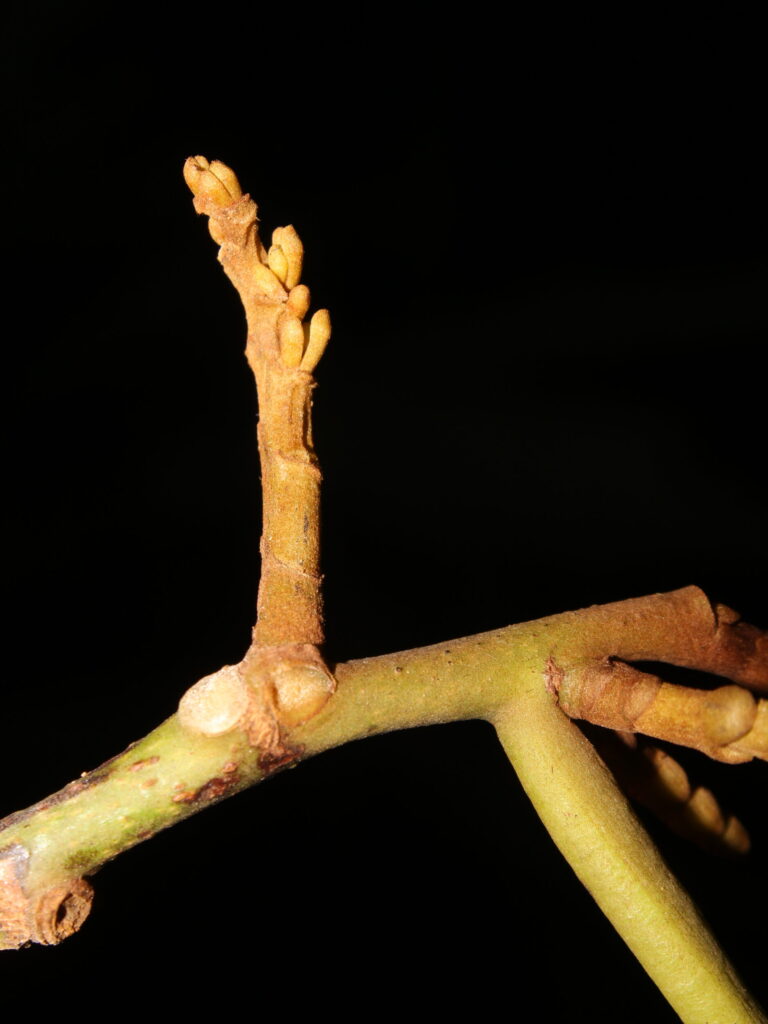
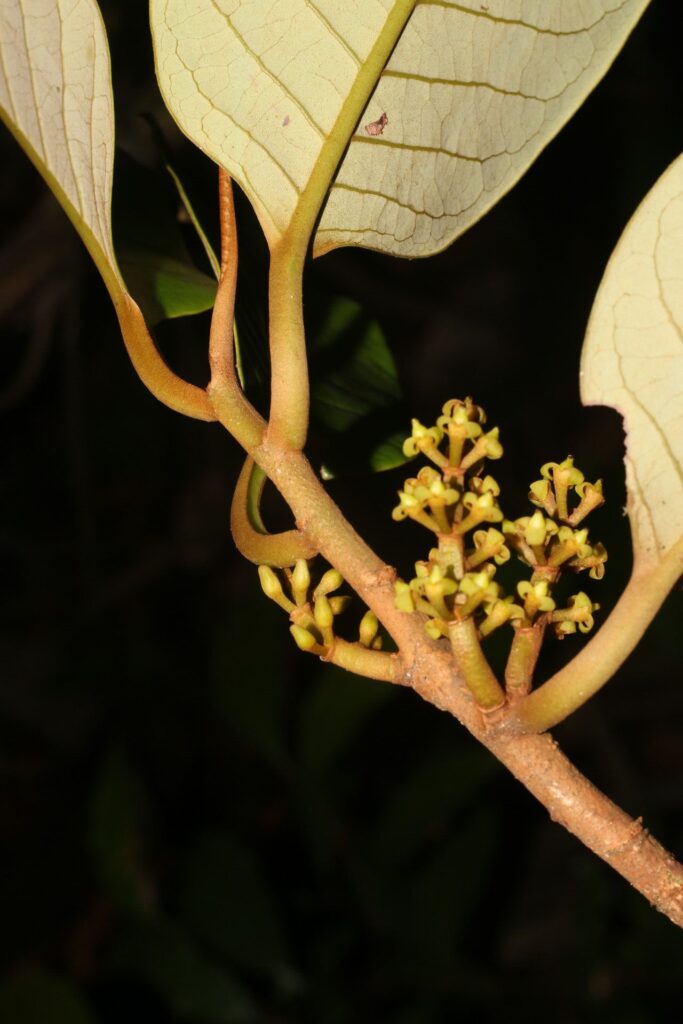
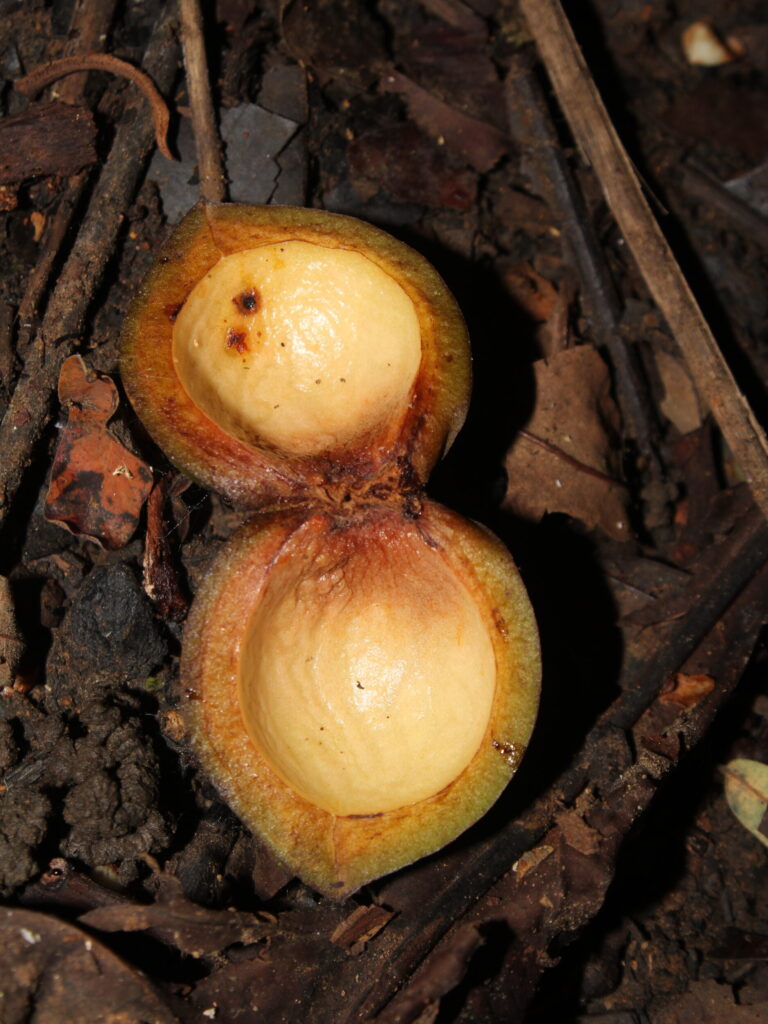
No Comments